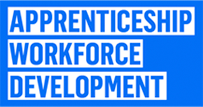Post-16 Education and Skills White Paper: UVAC View
Monday 20th October 2025, the Post-16 Education and Skills White Paper was released by the Government, signed off by not one, not two, but three Secretaries of State. The alignment across DfE, DWP and DSIT may be a small indication that Government finally recognises that it must stop trying to design and manage skills policies in silos, both within DfE, but also between DfE and HMT, DSIT, DCMS, DWP, DBT and other departments that sponsor training for their sector.
So, what does it say? Well, you would be forgiven for thinking (according to the main headlines in the national media) the main feature is that university tuition fees and maintenance loans in England will increase every year in line with inflation from 2026 onwards. Which belies the detail of the longer systemic and cultural shift proposed within the post-16 system system and the pleasing fact that the White Paper is far more than just a strategy for tackling youth unemployment in this parliament – though it is clear there is also an ambition for the two to go hand in hand, with the all-age apprenticeship and skills policy now sitting across both DfE and DWP.
On one level, there is a – very broad – skills vision. The language of opportunity, and of parity of respect for academic and vocational routes, is a rich and resonant one. It is no coincidence that every UK Government for the past decade has used a version of this narrative. The challenge is whether the White Paper has elevated the various elements (already well known and well explored) into a proper narrative. Interestingly, the term ‘tertiary’ to describe the post-16/18 education and skills system is not used or referenced which is an early positive in itself because the term speaks, in my view, to a history in policy-based terms that likes to rank, unhelpfully, education over training.
So, the policy ambition is set out: for a coordinated set of reforms that offers viable pathways to young people and adult learners through the various levels of education and into employment, contributing to economic growth through providing the skilled individuals the country needs. What the White Paper gives us is indeed a selection box of policies, plans and measures pulled together to present the next chapter of the Government’s narratives on opportunities, skills, and the economy, one that speaks of renewed and reinvigorated partnerships, stronger governance and sharper regulation (some might say greater centralised control – particularly for FE) whilst recognising the independence and autonomy of HE and its role in driving economic growth.
The White Paper releases more details on what we already know is policy in place. Short courses funded through the growth and skills levy – introduced from April 2026 – now have their own special name: apprenticeship units. As previously announced, an initial wave of fundable short courses will be offered for employers in “critical skills areas” such as engineering, digital and artificial intelligence. V levels, are further explained HERE, but we remain a supporter to the Protect Student Choice campaign.
The PM’s new higher education target, announced during his conference speech, specifically included expanding training at levels 4 and 5. Now confirmed in the White Paper, the Office for Students (OfS) will become the “single primary regulator” for all providers teaching level 4 and above. In addition:
- DfE will “encourage” further and higher education organisations to work together on progression pathways through level 4+ training, even floating “novel alternative business models, including federated models and partnerships” between the two sectors
- There will be a “stronger expectation” on higher education providers to set out how they will deliver technical skills needs identified in local skills improvement plans
- While there is an absence of a timeline, DfE states it will work with the OfS on a process to grant colleges and training providers their own awarding powers for “occupationally focused” level 4 and 5 higher technical qualifications
- Awarding organisations will continue to be able to develop and market higher technical qualifications, if they’ve been licensed by the OfS to do so
- All of this will be scrutinised by a new “market monitoring function” within DfE, with Skills England charged with identifying cold spots in supply of higher-level education and training.
UVAC Response
UVAC will continue to make the case for universities and their role in higher-level skills and vocational provision. This means how university equips individuals for skilled employment and graduate jobs and goes beyond apprenticeships. Rather it is how institutions deliver the knowledge and skills employers need and supports those entering the workforce and those in the workforce. UVAC will continue to promote how universities support the growth of local and regional economies and how higher-level vocational provision supports opportunity for all. All these arguments are very strong but UVAC is mindful of the risk of being drowned out by other matters and other organisation’s messaging.
While getting the long-term sick back into work and reducing NEET numbers is important, UVAC will emphasise the third priority of the DWP, in tackling skills gaps and shortages which are critical to significantly boost productivity and economic growth. UVAC needs to ensure that this is the key message taken from the White Paper. UVAC will look to emphasise the role of universities, apprenticeship, HTQs and HE provision generally in developing the skills of both new entrants and the existing workforce, particularly in IS-8+2 priority sectors.
The prime minister’s new ambition, for two thirds of young people to study to higher level (level 4 or above) – whether undertaking degrees, higher technical qualifications or apprenticeships – by the age of 25, could represent a genuine paradigm shift in how England approaches education and skills and in how HE responds. This long-awaited White Paper gives UVAC a renewed opportunity to explore what this will mean for HE, and crucially the role of universities and higher education providers working in partnership.
Despite the detailed expectation and more ‘Labour like’ policy decisions within the White Paper, UVAC needs to repeat back to Skills England and Ministers that higher-level qualifications and training are needed for two-thirds of workers entering priority sectors. Universities are essential developers and providers of such programmes – degree apprenticeship provides an excellent example of new flexible and innovative provision. We also need to emphasise the need for government, employers and individuals to increase spending on training, both new entrants and the existing workforce. To date, however, this has not been the direction of government thinking. I am, however, cautious. Cautious because I cannot forget the unrealistic policies made by Labour in opposition including the promises linked to the Growth and Skills Levy.
Disappointingly, the Paper does not outline measures to support wider adult learning or address the need for a single, national approach to recognising prior learning to allow better progression.
The White Paper has, I would suggest, a sufficient overtone that recognises skills provision is not just an educational programme, but instead a productivity and growth driver, with growth through productivity and not growth through labour market participation alone. In finalising the design of the Growth and Skills Levy, government will needs to consider who pays for what skills provision – this is a fundamental must. Tackling the skills gaps and shortages as detailed are critical to significantly boost productivity and economic growth. This is a key message for any skills white paper.
Dr Mandy Crawford-Lee
Chief Executive
IN OTHER LATEST NEWS

4 days ago, Amanda Danells-Bewley

5 days ago, Amanda Danells-Bewley
NEWS BY CATEGORY
Get our latest news and events direct to your inbox - join our mailing list
Please enter your details below –


